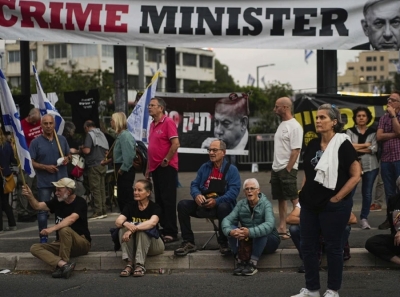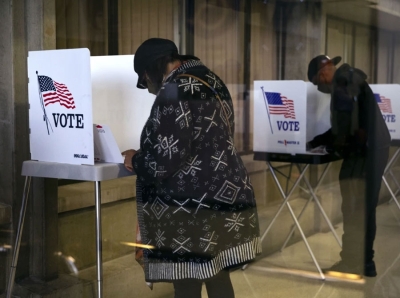Opposition wins Turkish local elections
The Kemalist CHP has won a surprise victory in nationwide local elections in Turkey. Contrary to what the polls had predicted, the CHP outperformed President Erdoğan’s AKP not only in certain cities but also in many small towns. 63 percent of Turks will have CHP mayors in the coming term. Commentators see national and international implications.
A warning from the rank and file
Erdoğan won the presidential elections just a year ago, Karar recalls:
“On 14 May [2023], the right-wing electorate had two options in response to the gigantic problems and mismanagement of the Turkish-style presidential system: either to put an end to the 22-year AKP government or to empower Erdoğan once again to avoid paving the way for the CHP to rise to power at all costs. ... The choice was between ‘the government goes or stays’. That wasn’t the case this time. The government’s voters realised that this election was an opportunity to send a clear warning — to the government.”
AKP had all the trumps
Rzeczpospolita sees the election result as a major defeat for Erdoğan’s party:
“The defeat of President Erdoğan’s camp is turning into a fiasco — despite an election campaign fought with almost unlimited financial resources, the support of the government apparatus and aggressive propaganda in the state media. What makes the defeat of the government camp even more dramatic is that the president secured another term in office only last year, and his AKP, together with a small allied nationalist party, was able to win a majority in parliament.”
Yellow card from impoverished citizens
Lidové noviny explains the main reason for the election result:
“Millions of poor Turks have punished Erdoğan’s AKP for the economic slump in recent years. The annual inflation rate in Turkey has long stood at above 50 percent (in February it topped 67 percent), interest rates on loans are extremely high and the Turkish lira continues to fall. ... For Erdoğan the defeat has another unpleasant aspect. His term as president ends in four years, and in order to remain at the highest level of Turkish politics he would have to push through a constitutional amendment. Commentators agree that he can hardly attempt such a manoeuvre after this election battle.”
Fair elections to improve image abroad
President Erdoğan will capitalise on this election despite his defeat, political scientist Ino Afentouli comments in To Vima:
“Elections in Turkey are conducted fairly. Otherwise, the ruling party that controls the state apparatus could falsify the results. Holding the elections in a fair manner allows Erdoğan to score points against external observers who accuse him of anti-democratic behaviour. And he will use this as an argument in his relations with both the EU and the US. He remains president, and it is very likely that rather than becoming more conciliatory in foreign relations he will renew his alliance with the nationalist MHP and revert to more hardline positions.”
Pressure will grow
It would be premature to say that Erdoğan’s rule is coming to an end, writes Gerd Höhler, Turkey and Greece correspondent for the Frankfurter Rundschau:
“He’s not one to give up easily. It’s unlikely that he will now return to the values of democracy and the rule of law. More likely he will press ahead with his plans for constitutional reform, which could give him even more power and the possibility of another term as president. The pressure on the opposition, government critics and civil rights activists is likely to grow.”
İmamoğlu’s foreign policy profile still fuzzy
For La Repubblica, the opposition also needs to raise its profile internationally:
“It’s one thing to demand more freedom, democracy and civil rights, but quite another to formulate a vision of Turkey’s role in the world that differs from the present one. One of the tasks awaiting İmamoğlu in the four years until the next presidential election is to come up with his own foreign policy. ... As mayor of Istanbul, this is certainly not a priority. But as a candidate for the highest office in the state it is indispensable. The question is whether and how he will — or will not — change Turkey’s stance on the wars in the north (Ukraine against Russia) and in the south (Israel against Hamas).”
Democracy not dead yet
De Standaard is delighted with the result:
“We’ve seen it elsewhere: when push comes to shove, when the erosion of democracy goes too far, voters will react as long as there are still some remnants of democratic rules shining faintly on the horizon. ... Local elections are not presidential elections. At the local level, the threshold for not voting for the government is lower, especially since the AKP under Erdoğan has become a one-man party. When there is no one man to vote for, more is possible. Nevertheless, this result holds out some hope for change.”









